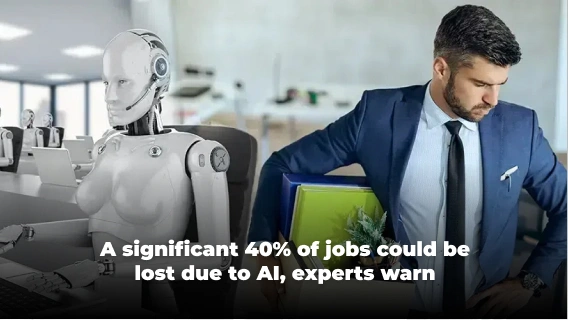By Tanmay Das

As AI (artificial intelligence) grows exponentially, discussions are taking place regarding the doubtful future of human employment, as this technology has the potential to both enhance productivity and displace workers.
Last month, the UNCTAD (United Nations agency for trade and development) warned that AI could impact up to 40% of jobs worldwide.
A McKinsey & Company report projects that AI automation could lead to the displacement of 400 to 800 million jobs globally within the next five years, depending on its adoption speed. This change would lead about 14% of the global workforce (375 million workers) to find completely new jobs.
An SEO.AI report shows that 14% of the workforce has been affected by AI, but the impact was not as severe as expected.
According to a National Bureau of Economic Research report, automation has been a huge factor in why blue-collar wages in the US have not increased or have even decreased since 1980. It’s responsible for 50% to 70% of the changes in wages.
High AI job anxiety exists in India. A recent EY report suggested that AI will impact 38 million jobs in India by 2030. A 2023 Microsoft survey found 74% of workers fear job loss to AI.
According to the UN and Atomberg’s Arindam Paul, many underestimate the threat of AI, which could eliminate 40-50% of white-collar jobs in India’s IT and BPO industries – a different impact than previous tech had on blue-collar roles.
Top AI figures like Bill Gates, Sam Altman, and Sundar Pichai have warned about AI risks in an open letter. Comparing AI threats to pandemics and nuclear warfare, these experts have urged urgent global action.
While AI job loss is a concern, many workers see its benefits. SnapLogic found that 81% feel AI enhances their work. In India, despite 74% fearing AI, 94% believe that AI will boost their career, and 83% want to offload tasks to it. Experts urge policies for worker transition and new job growth.